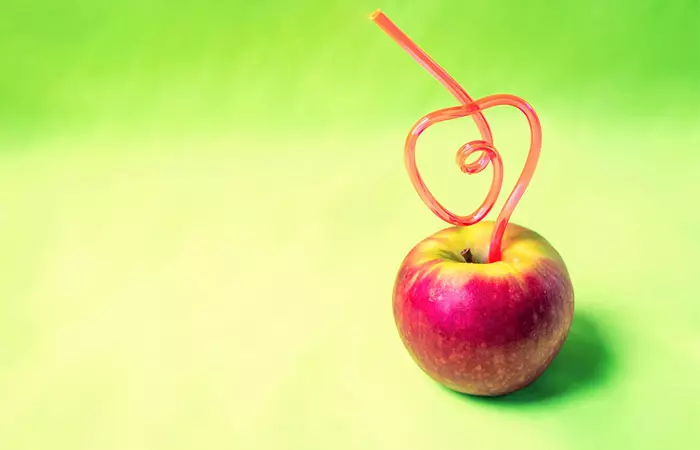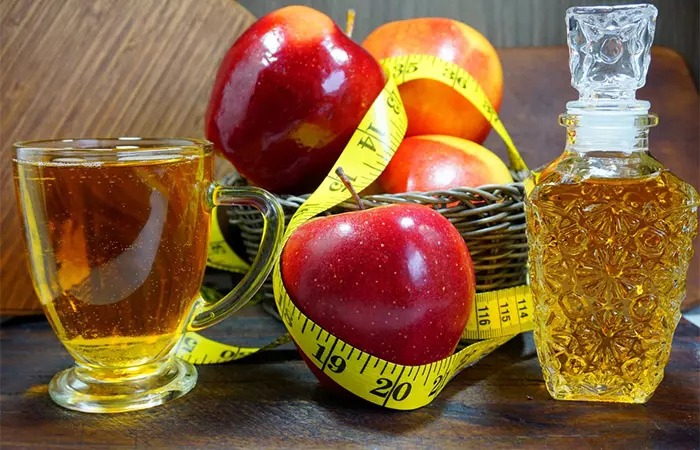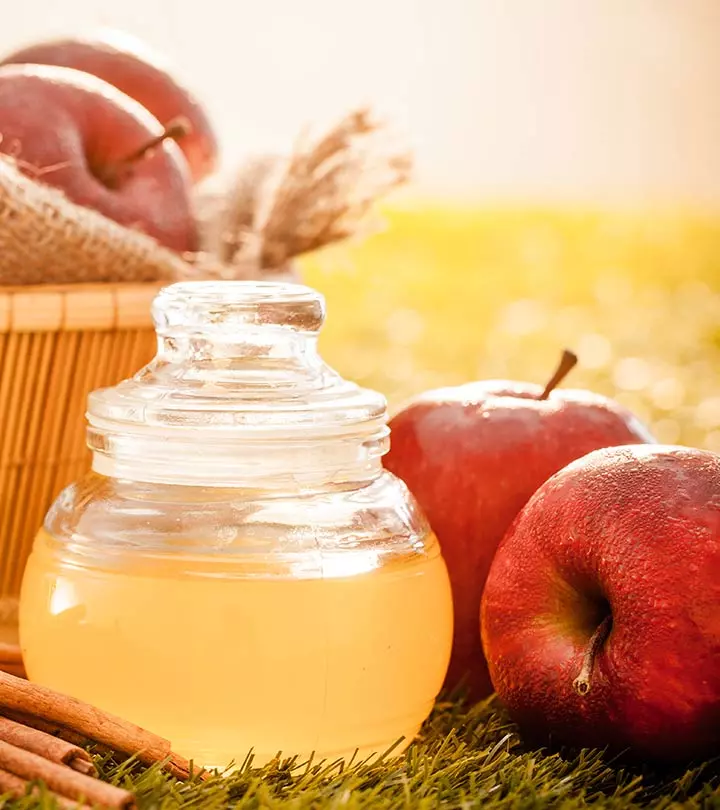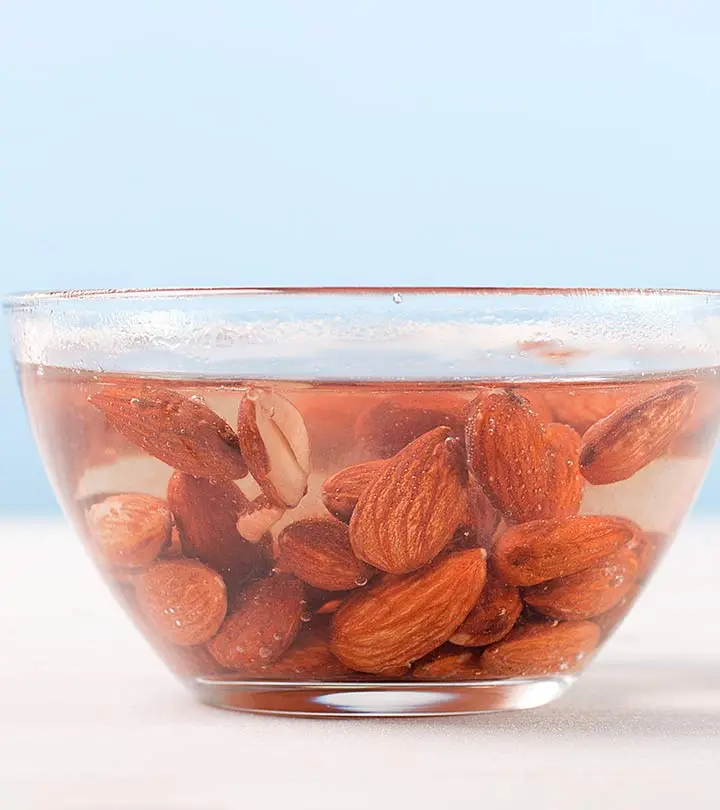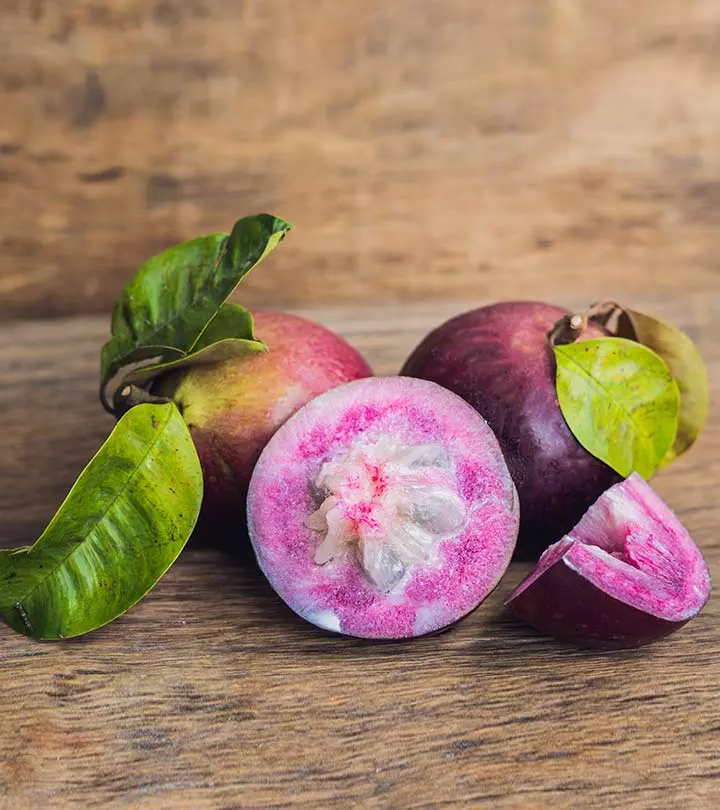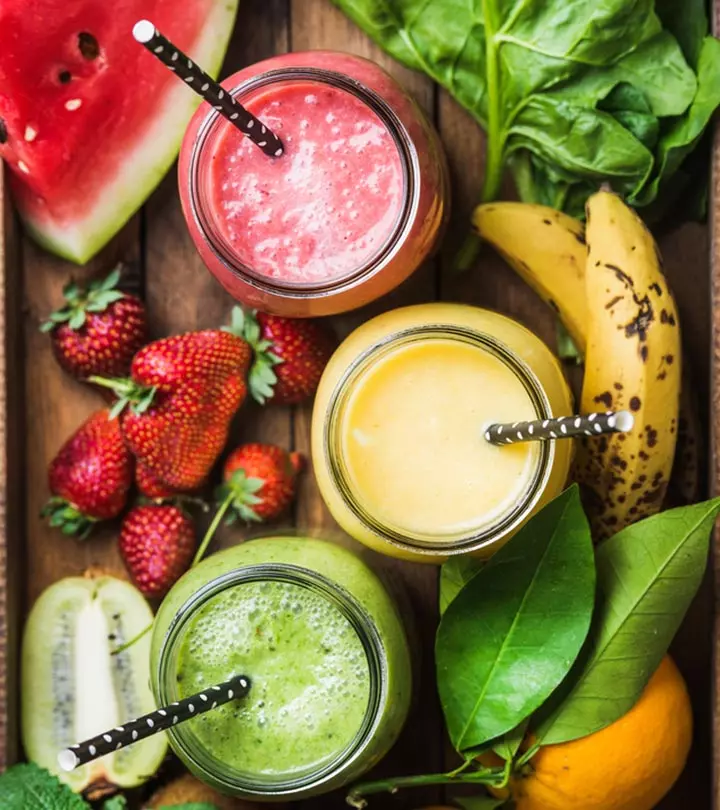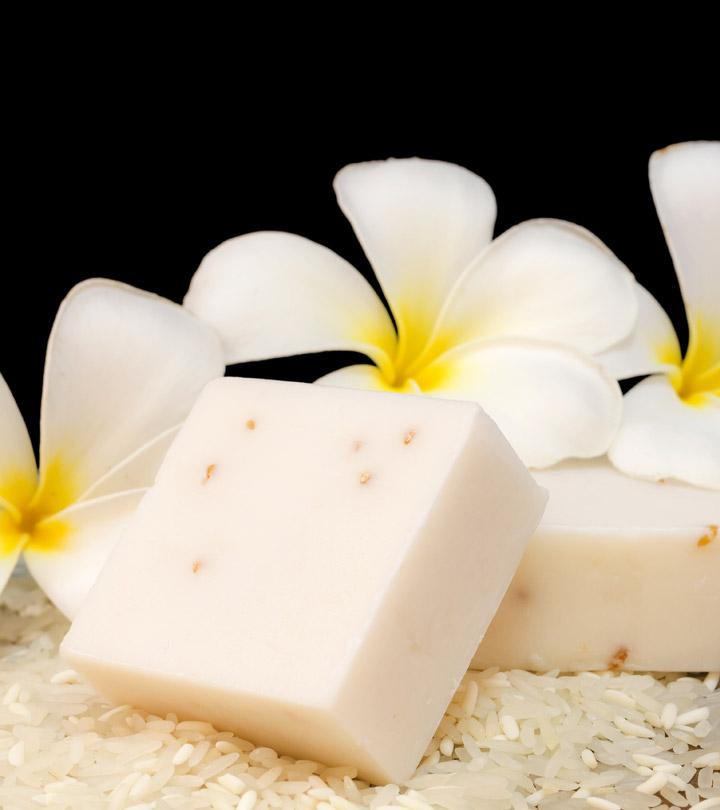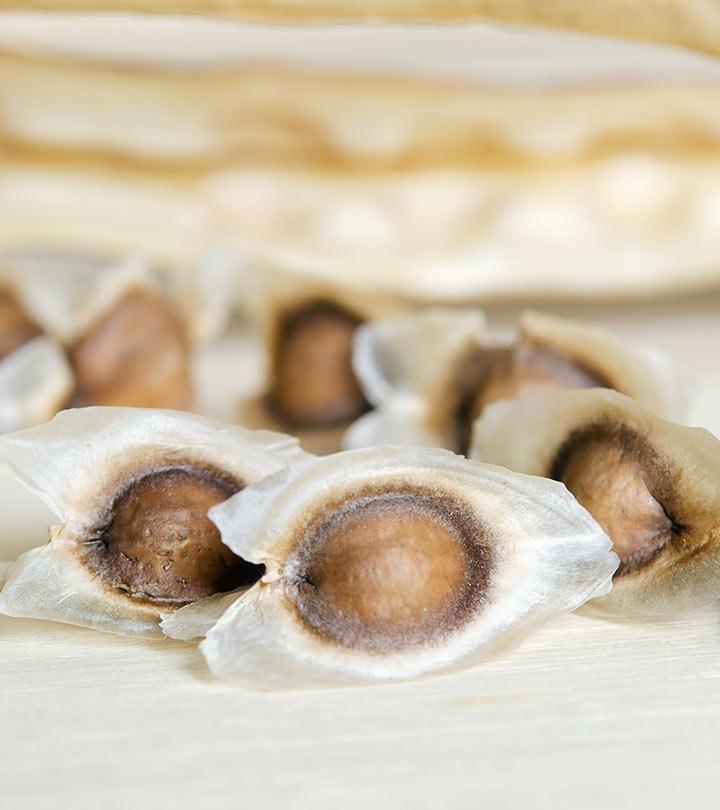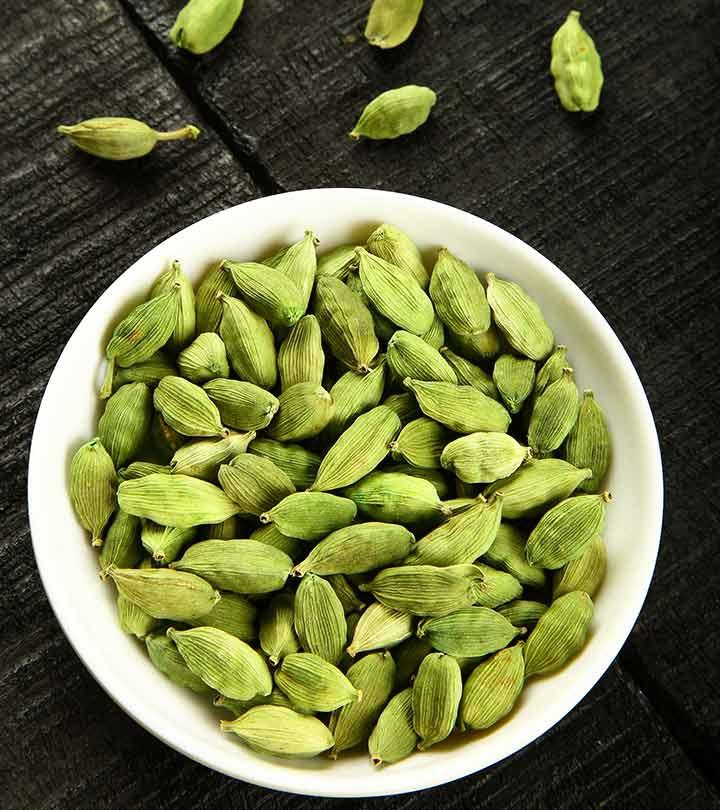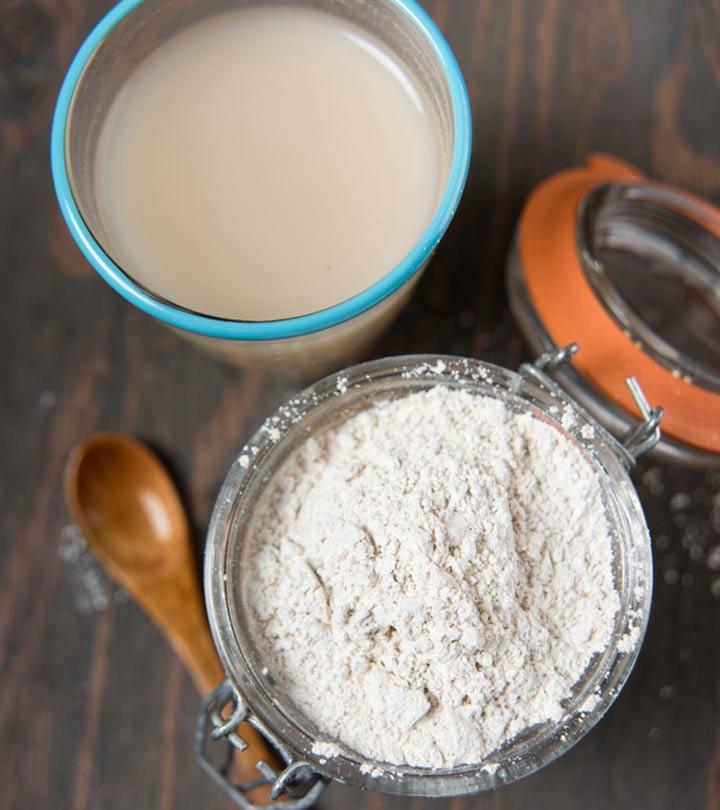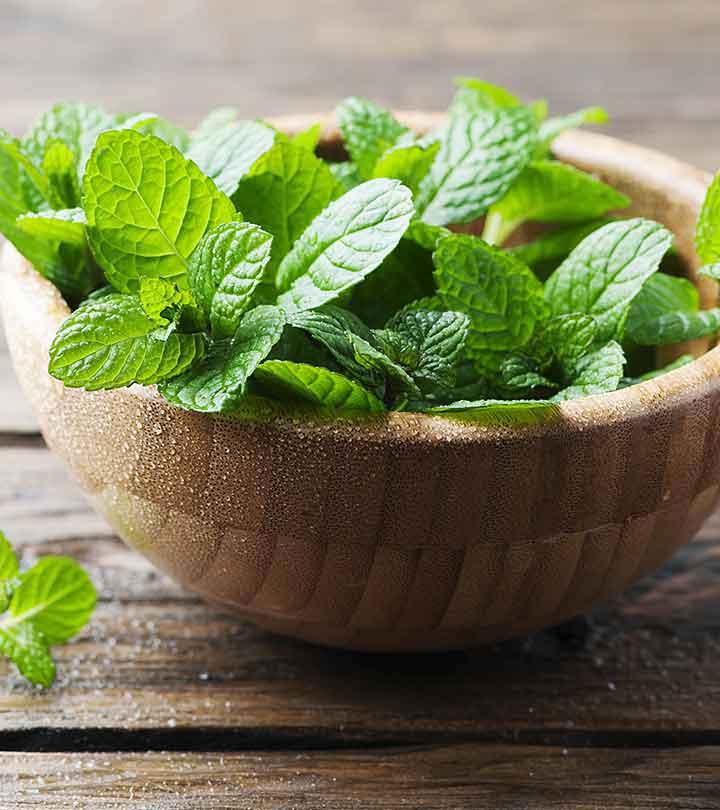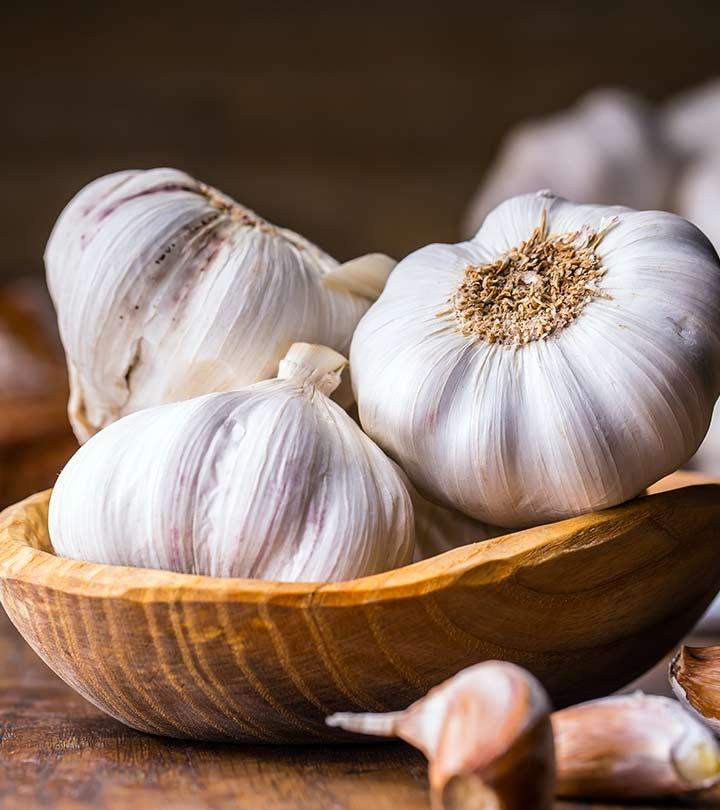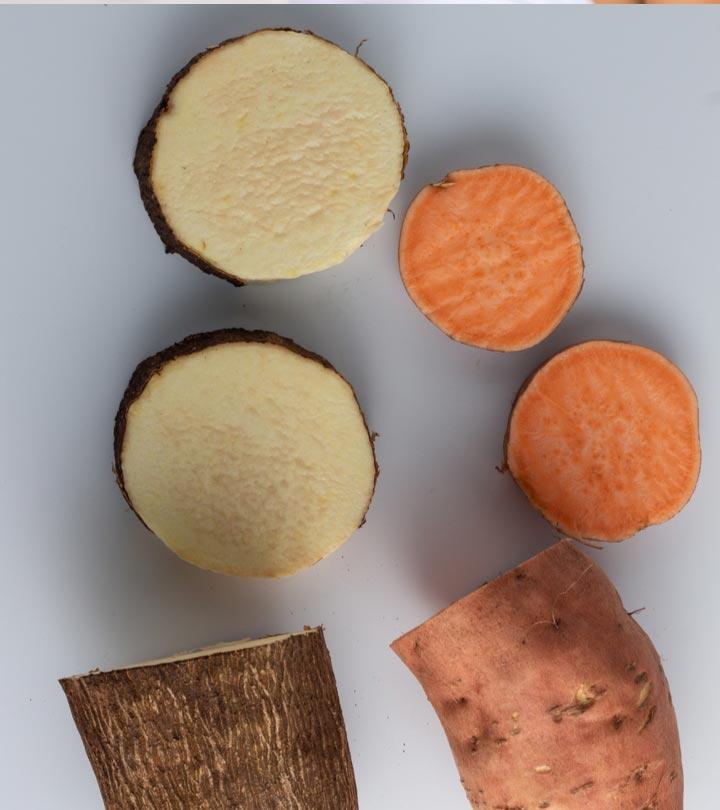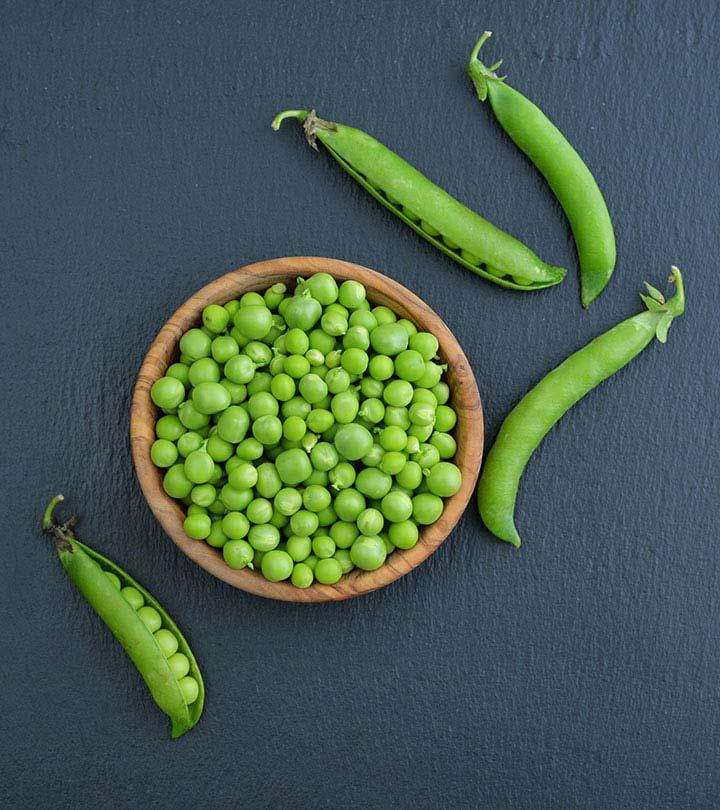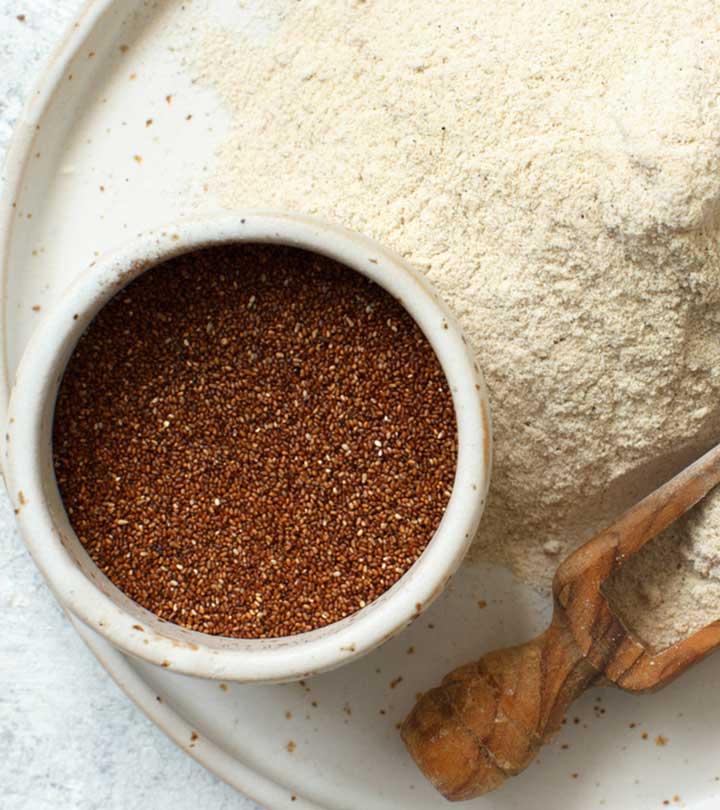8 Promising Health Benefits Of Apple Juice And Side Effects
The benefits of this fruit juice seem to go beyond what conventional wisdom has taught us.
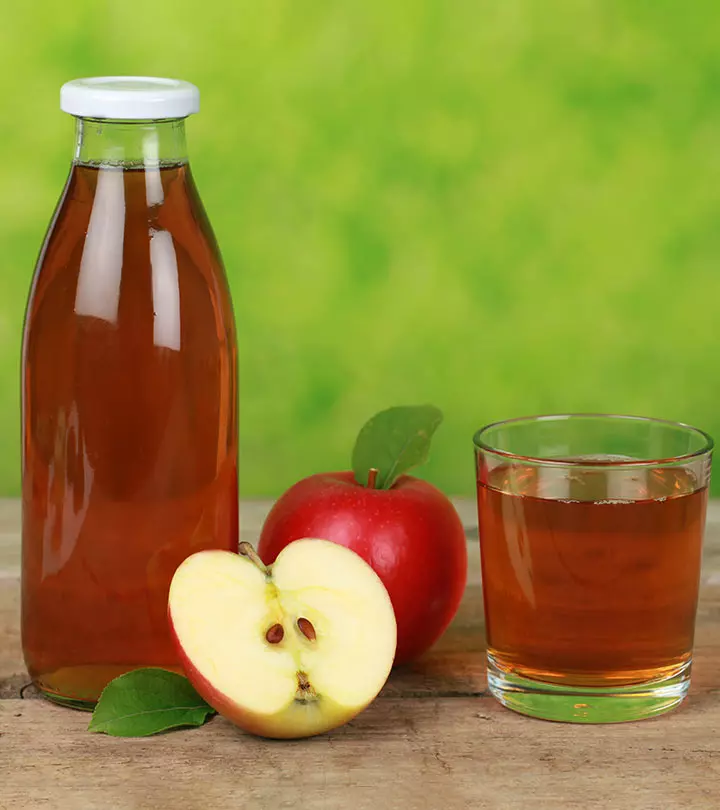
Image: istock
Apple juice is considered one of the healthy fruit drinks with numerous benefits. This versatile fruit juice contains many plant compounds used to treat various ailments. The rich nutritional profile of this beverage makes it popular around the world.
The hydrating quality of apples is maximized when they are juiced. This delicious juice possesses polyphenols and flavonoids with anti-cancer, anti-allergic, and anti-inflammatory effects. The juice may support heart health, boost the immune system, relieve symptoms of asthma, aid weight loss, and reduce the risk of certain cancers.
In this article, we have discussed how apple juice benefits you, along with its nutritional profile and potential side effects. Take a look.
 Know Your Ingredient: Apple Juice
Know Your Ingredient: Apple JuiceWhat Is It?
Juice from the fruit apple of the genus Malus.
What Are Its Benefits?
Its antioxidant, anti-allergic, and anti-inflammatory properties help in improving heart and respiratory health.
Who Can Consume It?
Anyone can consume it except those who are on allergy and anti-diabetic medications.
How Often?
It can be consumed daily in moderation.
Caution
Excessive consumption of more than 8 ounces may lead to gastrointestinal problems, weight gain, kidney problems, and tooth decay.
In This Article
Health Benefits Of Apple Juice
So, is apple juice good for you? If yes, what is apple juice good for? Apple juice may help in treating many ailments with its wide range of nutritional properties. It can improve heart health and help in weight management. Scroll down to know more.
1. May Support Heart Health
Apples are great sources of plant compounds, such as polyphenols and flavonoids, that are beneficial for heart health (1). A study states that the polyphenols may prevent bad (LDL) cholesterol from being oxidized and building up in the arteries (2).
Apple juice consumption exhibits antioxidant effects and reduces the risk of coronary artery disease (3). Another study conducted by the Federal University of Santa Catarina found that the intake of apple juice improved lipid peroxidationi A chain reaction that leads to the oxidative deterioration of lipids or organic fatty acids compounds in the body. and antioxidant status in blood serum (4).
Apple juice is rich in potassium. The mineral is crucial for maintaining heart health. Potassium is a vasodilator that can help lower stress on the blood vessels and reduce blood pressure (5). It can reduce the risk of heart disease.
2. May Relieve Symptoms Of Asthma
Apple juice possesses anti-inflammatory and anti-allergenic properties that may help relieve symptoms of asthma. The fruit juice is well-known to prevent asthma attacks (6), (1).
In addition, the polyphenols in the juice play a significant role in boosting lung health and reducing the risk of pulmonary diseases (7). It has been proven by the latest research that individuals who consume apple juice on a regular basis may have better lung function (8).
3. May Aid Weight Loss
Apples are rich in polyphenols, carotenoidsi Natural pigments present in fruits and vegetables. These are antioxidants that help lower the risk of chronic diseases, such as cancer. , and dietary fiber. The consumption of apple juice may help aid weight loss.
A study conducted by the Isfahan University of Medical Sciences found that apple polyphenols had anti-obesity properties. Animal and human experiments show that intake of apples in different forms can cause weight loss in overweight people (9).
Apples are good sources of flavonoids. Increased consumption of fruits with flavonoids may help in reducing body weight (10).
4. May Have Anticancer Potential
Flavonoids and phenolic acids have been proven to be effective in preventing the development of tumors and cancerous cells.
A study conducted by the Federal University of Sao Paulo found that the presence of certain phytochemicalsi Compounds found in fruits, vegetables, and nuts that help strengthen the immune system, combat oxidative stress, and promote healing. and antioxidants in apples may act against carcinogenesisi The process of cancer development wherein healthy cells transform into cancer cells and damage the DNA of the cells. . However, more studies in this line are needed to reach further conclusions (11).
Another study conducted by the German Cancer Research Center found that regular consumption of one or more apples or their juice may reduce the risk of lung and colon cancers (12).
5. May Help Protect The Brain
Apple juice may protect the brain from free radical damage. The polyphenolic antioxidants in apple juice may diminish neuronal apoptosis (death of brain cells). They may help in the treatment of neurodegenerative diseases like Alzheimer’s and Parkinson’s (13).
Antioxidants have more potential to act against cancerous cells and prevent damage from oxidative stress (6). A study conducted by the University of Massachusetts-Lowell found that apple juice may improve behavioral symptoms in those with moderate-to-late stage Alzheimer’s (14).
6. May Improve Skin Health
The presence of vitamin C and antioxidants in apple juice may help improve skin health. Some anecdotal evidence suggests that this juice is widely used in natural remedies for treating skin-related issues like skin inflammation, itching, skin infections, cracked skin, and wrinkles.
The polyphenols in apple juice may prevent premature aging (15).
7. May Improve Eye Health
Apples (and their juice) are rich in vitamin A (16). This vitamin helps in improving vision and prevents eye disorders (17).
8. May Improve Liver Function
Apple juice is rich in malic acid (18). Anecdotal evidence suggests that it may promote liver function. The juice may also stimulate urination, and this may promote liver health too.
The alkalinity in apples assists in cleansing the toxins/waste by-products from the liver. However, research is limited in this area.
 Did You Know?
Did You Know?Check out the nutritional information of this juice below.
Nutritional Facts Of Apple Juice
Apple contains a number of essential nutrients. According to the United States Department of Agriculture, one cup (248 g) of apple juice contains (19):
- Water – 219 g
- Energy – 114 kcal
- Carbohydrate – 28 g
- Protein – 0.24 g
- Sucrose – 3.12 g
- Vitamin C – 2.23 mg
One serving of apple juice provides your body with a high amount of vitamins, minerals, and antioxidants. With zero cholesterol and a very low quantity of saturated fats and sodium, apples are among the healthiest fruits.
Many people like drinking the juice of an apple rather than eating the fruit in the raw form. The high water content in this juice acts as a good source of hydration for the body.
The nutritional value of apple juice is the same as that of a raw apple, provided it has been extracted from fresh apples. The commercially available juices usually contain preservatives that reduce the nutritional value of apple juice. Hence, making apple juice at home is the best way to avail its maximum benefits and nutrition.
Commercial apple juice contains concentrated apple juice, water, ascorbic acid (vitamin C), calcium citrate (less than 0.5%), and potassium phosphate.
 Quick Tip
Quick TipThough apple juice is generally safe for consumption, it does have a few side effects that you need to keep in mind. Check them out in the following section.
Side Effects Of Apple Juice
The consumption of apple juice is generally considered safe. However, excess intake may lead to several adverse effects. It may cause gastrointestinal problems, weight gain, kidney problems, and tooth decay.
- May Cause Gastrointestinal Problems
Excess consumption of apple juice may cause some gastrointestinal problems like diarrhea and flatulencei A natural process that causes the expulsion of intestinal gas present in the digestive system through the anus. .
A study conducted by the Free University Hospital found that the presence of sorbitol and fructose in apple juice might cause chronic diarrhea. These are not completely absorbed by most people (20). Avoid drinking the juice on an empty stomach. It may also lead to gas and bloating due to its high sugar content.
- May Contribute To Weight Gain
When compared to whole apples, the juice can be consumed faster. This may cause a high intake of calories in a short span of time.
A study conducted by The Pennsylvania State University found that consumption of whole fruit induces satiety better than fruit juice. It was the least filling when compared to eating whole fruit (21).
Fruit juices contain excess sugars and intake of sugar-containing beverages was found to lead to weight gain among children under age 12 (22).
- Higher Risk Of Kidney Stones
The presence of oxalates in apple juice may increase the risk of kidney stones. A study conducted by the University of Alabama at Birmingham found that excess intake of dietary oxalates may directly lead to stone formation in the kidneys (23). The ideal dosage of apple juice could be 240 mL per day (24).
- May Encourage Tooth Decay
Fruit juices are rich in sugars. The bacteria in the mouth consume these sugars and may cause tooth erosion (25). Packaged apple juice was found to be acidic and may cause damage to the tooth enamel (26).
- Apple Juice Is Low In Vitamins And Minerals
Vitamin C is commonly added to fortified fruit juices. Moreover, the recommended quantity (240 mL per day) of juice intake doesn’t supply all essential vitamins and minerals.
A study conducted by the Institute of Food Science, Technology and Nutrition states that the consumption of apple polyphenols from whole apples are better than those from apple juice. Whole apples contain fiber, while apple juice may most often be less in fiber (27),(28).
- May Spike Your Blood Sugar Levels
Apple juice contains less fiber and more sugar than whole apples. This may lead to a spike in blood glucose levels.
A study found that apple juice, along with protein foods, may reduce the glucose levels in serum better than apple juice alone (29).
While these side effects could be real, do note that consuming apple juice the right way can help reduce the risk. In the following section, we have discussed the different ways you can incorporate it into your diet. Continue reading.
How Can You Add Apple Juice To Your Diet?
- Swap your morning coffee for a glass of apple juice. It is a refreshing way to start the day.
- Blend apple juice with your favorite fruits and yogurt to make a delicious, healthy smoothie.
- Use apple juice as a natural sweetener in recipes. It works great for glazing meats, roasting vegetables, or creating a sweet sauce.
- Create refreshing beverages by adding apple juice to sparkling water or as a base for cocktails or mocktails.
- You can add apple juice to chicken or pork marinades to add a touch of sweetness and flavor.
- Make apple juice popsicles for a cooling treat on hot days.
Infographic: Most Important Health Benefits Of Apple Juice
Apple juice is considered to be one of the most healthy drinks as it is packed with vital vitamins essential in any diet.” to “Apple juice is considered to be one of the healthiest drinks as it is packed with vital vitamins essential in any diet.

Illustration: StyleCraze Design Team
The benefits of apple juice are numerous. It is loaded with many vitamins, antioxidants, and minerals. It can promote cardiovascular, skin, eye, and liver health. This juice can also protect the brain from free radical damage. The phytochemicals and antioxidants in the juice increase its anticancer potential. Even though it possesses great cancer prevention properties, excess intake may cause gastrointestinal problems, weight gain, tooth decay, and a spike in blood sugar levels. Some believe it may also increase the risk of kidney stones in susceptible individuals. Moderate consumption is advised to reap all its benefits.
Frequently Asked Questions
Is 100% apple juice good for you?
Yes. 100 % apple juice is good when taken in moderation. However, eating a whole apple can help you reap more benefits.
What happens if I drink apple juice every day?
Apple juice can benefit your overall health when consumed daily. However, it should be homemade and without any artificial sweeteners to reap all of its benefits.
Which juice is better – apple juice or orange juice?
Apples have a low glycemic index and can significantly reduce the risk of diabetes. On the other hand, oranges are loaded with vitamin C and many beneficial nutrients that promote your overall health. The choice of the juice entirely depends on the individual’s taste and health conditions.
Why does apple juice make my stomach hurt?
Apple juice has a non-digestible form of sugar called sorbitol. Thus, it may trigger gastrointestinal issues in some people.
Key Takeaways
- Apple juice contains essential vitamins and minerals such as vitamin C, potassium, and antioxidants.
- If you want to promote cardiovascular health by maintaining blood pressure, apple juice is the easiest diet option.
- As apples are rich in fiber, their juice will help you regulate digestion and relieve constipation.
- Apple juice contains malic acid that is beneficial for liver health.
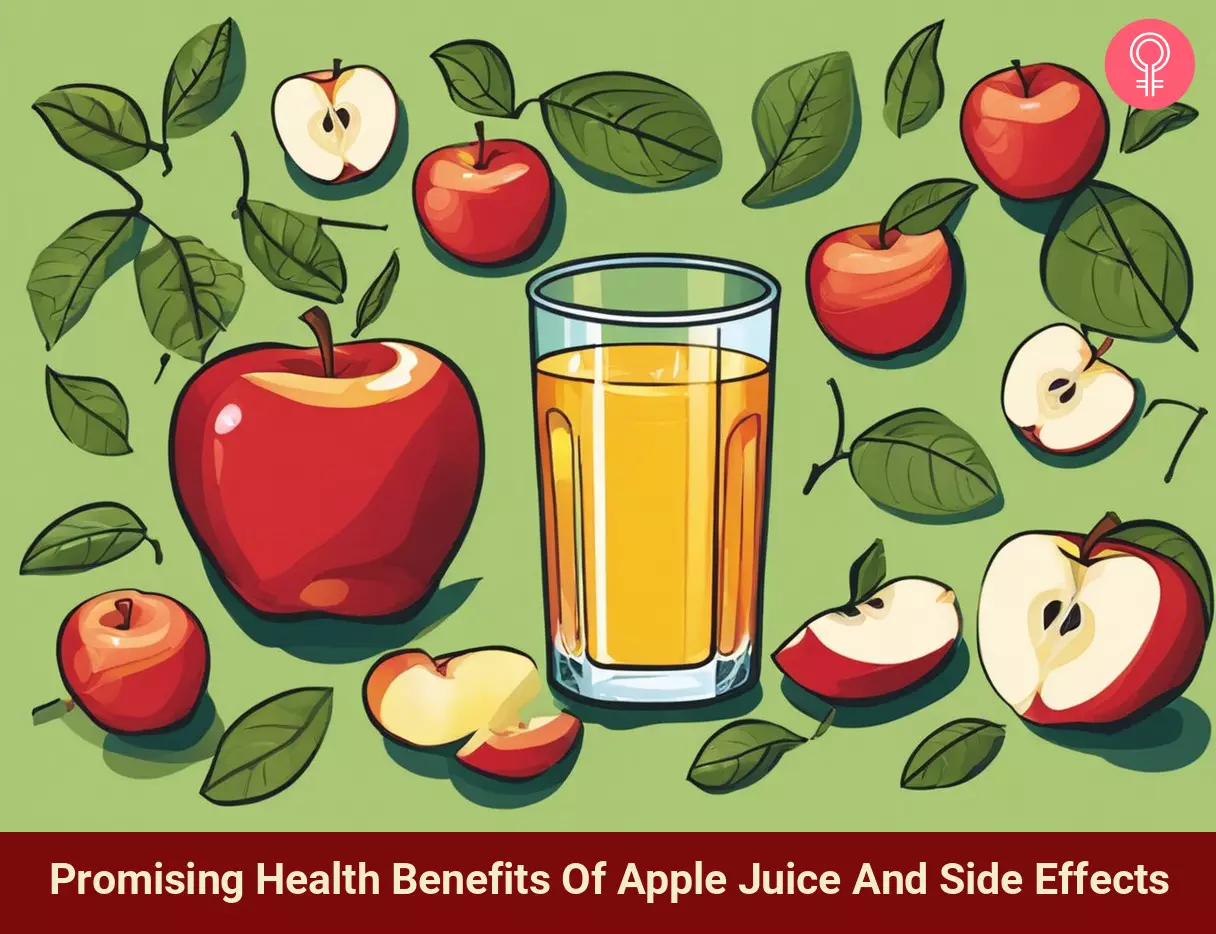
Image: Stable Diffusion/StyleCraze Design Team
See what happens if you drink a glass of apple juice every day! Find out the amazing health benefits and how it can improve your life. Watch this insightful video to learn more!
References
Articles on StyleCraze are backed by verified information from peer-reviewed and academic research papers, reputed organizations, research institutions, and medical associations to ensure accuracy and relevance. Read our editorial policy to learn more.
- Boyer, Jeanelle, and Rui Hai Liu. “Apple phytochemicals and their health benefits.” Nutrition journal vol. 3 5. 12 May. 2004.
https://www.ncbi.nlm.nih.gov/pmc/articles/PMC442131/ - Cheng, Yu-Chen et al. “Polyphenols and Oxidative Stress in Atherosclerosis-Related Ischemic Heart Disease and Stroke.” Oxidative medicine and cellular longevity vol. 2017 (2017): 8526438.
https://www.ncbi.nlm.nih.gov/pmc/articles/PMC5727797/ - Hyson D, Studebaker-Hallman D, Davis PA, Gershwin ME. Apple juice consumption reduces plasma low-density lipoprotein oxidation in healthy men and women. J Med Food. 2000;3(4):159–166.
https://pubmed.ncbi.nlm.nih.gov/19236172 - Vieira FG, Di Pietro PF, da Silva EL, Borges GS, Nunes EC, Fett R. Improvement of serum antioxidant status in humans after the acute intake of apple juices. Nutr Res. 2012;32(3):229–232.
https://pubmed.ncbi.nlm.nih.gov/22464810 - Weaver, Connie M. “Potassium and health.” Advances in nutrition (Bethesda, Md.) vol. 4,3 368S-77S. 1 May. 2013, doi:10.3945/an.112.003533
https://www.ncbi.nlm.nih.gov/pmc/articles/PMC3650509/ - Hyson, Dianne A. “A comprehensive review of apples and apple components and their relationship to human health.” Advances in nutrition (Bethesda, Md.) vol. 2,5 (2011): 408-20.
https://www.ncbi.nlm.nih.gov/pmc/articles/PMC3183591/ - Hyun, Tae Kyung, and Keum-Il Jang. “Apple as a source of dietary phytonutrients: an update on the potential health benefits of apple.” EXCLI journal vol. 15 565-569. 19 Sep. 2016.
https://www.ncbi.nlm.nih.gov/pmc/articles/PMC5225682/ - Hyson, Dianne A. “A comprehensive review of apples and apple components and their relationship to human health.” Advances in nutrition 2.5 (2011): 408-420.
https://www.researchgate.net/publication/221830290_A_Comprehensive_Review_of_Apples_and_Apple_Components_and_Their_Relationship_to_Human_Health - Asgary S, Rastqar A, Keshvari M. Weight Loss Associated With Consumption of Apples: A Review. J Am Coll Nutr. 2018;37(7):627–639.
https://pubmed.ncbi.nlm.nih.gov/29630462 - Bertoia ML, Rimm EB, Mukamal KJ, Hu FB, Willett WC, Cassidy A. Dietary flavonoid intake and weight maintenance: three prospective cohorts of 124,086 US men and women followed for up to 24 years. BMJ. 2016;352:i17. Published 2016 Jan 28.
https://pubmed.ncbi.nlm.nih.gov/26823518 - Ribeiro FA, Gomes de Moura CF, Aguiar O Jr, et al. The chemopreventive activity of apple against carcinogenesis: antioxidant activity and cell cycle control. Eur J Cancer Prev. 2014;23(5):477–480.
https://pubmed.ncbi.nlm.nih.gov/24366437- - Gerhauser C. Cancer chemopreventive potential of apples, apple juice, and apple components. Planta Med. 2008;74(13):1608–1624.
https://pubmed.ncbi.nlm.nih.gov/18855307 - Ataie A, Shadifar M, Ataee R. Polyphenolic Antioxidants and Neuronal Regeneration. Basic Clin Neurosci. 2016;7(2):81–90.
https://pubmed.ncbi.nlm.nih.gov/27303602 - Remington R, Chan A, Lepore A, Kotlya E, Shea TB. Apple juice improved behavioral but not cognitive symptoms in moderate-to-late stage Alzheimer’s disease in an open-label pilot study. Am J Alzheimers Dis Other Demen. 2010;25(4):367–371.
https://pubmed.ncbi.nlm.nih.gov/20338990 - Palermo, Vanessa et al. “Apple can act as anti-aging on yeast cells.” Oxidative medicine and cellular longevity vol. 2012 (2012): 491759.
https://www.ncbi.nlm.nih.gov/pmc/articles/PMC3437301/ - “FoodData Central Search Results.” FoodData Central,nutrients.
fdc.nal.usda.gov/fdc-app.html#/food-details/454004/ - Gilbert, Clare. “What is vitamin A and why do we need it?.” Community eye health vol. 26,84 (2013): 65.
https://www.ncbi.nlm.nih.gov/pmc/articles/PMC3936685/ - Lee HS, Wrolstad RE. Apple juice composition: sugar, nonvolatile acid, and phenolic profiles. J Assoc Off Anal Chem. 1988;71(4):789–794.
https://pubmed.ncbi.nlm.nih.gov/3417603 - “FoodData Central Search Results.” FoodData Central,nutrients.
fdc.nal.usda.gov/fdc-app.html#/food-details/173933/ - Kneepkens CM, Jakobs C, Douwes AC. Apple juice, fructose, and chronic nonspecific diarrhoea. Eur J Pediatr. 1989;148(6):571–573.
https://pubmed.ncbi.nlm.nih.gov/2744021 - Flood-Obbagy JE, Rolls BJ. The effect of fruit in different forms on energy intake and satiety at a meal. Appetite. 2009;52(2):416–422.
https://pubmed.ncbi.nlm.nih.gov/19110020 - Frantsve-Hawley J, Bader JD, Welsh JA, Wright JT. A systematic review of the association between consumption of sugar-containing beverages and excess weight gain among children under age 12. J Public Health Dent. 2017;77 Suppl 1:S43–S66.
https://pubmed.ncbi.nlm.nih.gov/28556932 - Mitchell T, Kumar P, Reddy T, et al. Dietary oxalate and kidney stone formation. Am J Physiol Renal Physiol. 2019;316(3):F409–F413.
https://pubmed.ncbi.nlm.nih.gov/30566003 - Auerbach, Brandon J et al. “Review of 100% Fruit Juice and Chronic Health Conditions: Implications for Sugar-Sweetened Beverage Policy.” Advances in nutrition (Bethesda, Md.) vol. 9,2 (2018): 78-85.
https://www.ncbi.nlm.nih.gov/pmc/articles/PMC5916434/ - Liska, DeAnn et al. “100% Fruit Juice and Dental Health: A Systematic Review of the Literature.” Frontiers in public health vol. 7 190. 12 Jul. 2019.
https://www.ncbi.nlm.nih.gov/pmc/articles/PMC6640211/ - Shroff P, Gondivkar SM, Kumbhare SP, Sarode S, Gadbail AR, Patil S. Analyses of the Erosive Potential of Various Soft Drinks and Packaged Fruit Juices on Teeth. J Contemp Dent Pract. 2018;19(12):1546–1551. Published 2018 Dec 1.
https://pubmed.ncbi.nlm.nih.gov/30713187 - Soriano-Maldonado A, Hidalgo M, Arteaga P, de Pascual-Teresa S, Nova E. Effects of regular consumption of vitamin C-rich or polyphenol-rich apple juice on cardiometabolic markers in healthy adults: a randomized crossover trial. Eur J Nutr. 2014;53(8):1645–1657.
https://pubmed.ncbi.nlm.nih.gov/24531755 - Ravn-Haren G, Dragsted LO, Buch-Andersen T, et al. Intake of whole apples or clear apple juice has contrasting effects on plasma lipids in healthy volunteers. Eur J Nutr. 2013;52(8):1875–1889.
https://pubmed.ncbi.nlm.nih.gov/23271615/ - Lilly LN, Heiss CJ, Maragoudakis SF, Braden KL, Smith SE. The Effect of Added Peanut Butter on the Glycemic Response to a High-Glycemic Index Meal: A Pilot Study. J Am Coll Nutr. 2019;38(4):351–357.
https://pubmed.ncbi.nlm.nih.gov/30395790
Read full bio of Nilofar Pendhari
Read full bio of Ravi Teja Tadimalla
Read full bio of Moksha Gandhi





